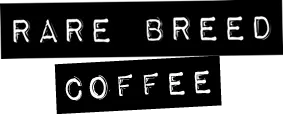I remember when I learned about Funcaion Amigos del Cafe very clearly. When Emeran and I first arrived at the Santa Rosa Beneficio in Honduras last March, we were brought into a calm, air-conditioned room, where we met Peter. Friendly staff in crisp uniforms brought us Chemex pour overs and chilled bottled water. The hospitality was kind and the room and cool water felt incredibly refreshing after a hot trip along very winding roads we took to get there.
Peter was seated in his wheelchair, when he welcomed us into the room. He has been bound to that chair since he was accidentaly shot in the back a few years ago. Peter guided us through a PowerPoint presentation about the Fundacion Amigos del Café. As he explained the mission and strategic initiatives of the group I became more and more impressed and humbled. I had pictured our role in coming to this country as helpers, from the outside. I thought we could make an impact in the two weeks we spent there. What I learned from Peter was that change has to come from within. Outsiders can help, but Honduran people need to be the designers of their own reform. They know their culture best. They understand the needs of their communities and how change can best be implemented.
Amigos del Cafe supplies water purification systems to families in remote areas of Honduras
The Fundacion Amigos del Café is a program that Peter and his colleagues have designed to educate poor coffee farmers and their families in extremely rural areas of Honduras about agriculture, family dynamics, health, and sanitation. The program offers classes to families. If families participate in classes, they can meet certain goals (based on how many classes they complete). The rewards for meeting goals are practical and extremely influential gifts such as water purifiers, vented stoves, and concrete floors. This is where we can help. Outsiders can help donate toward these gifts and play an important role in this community-driven project.
Fundacion Amigos del Cafe drive this fall
We are going to be contributing towards the Funcaion Amigos del Café this year at A&E buy raising money to purchase water purifiers for farmers. Each one costs $65. Stay posted for signs in the café about how you can donate. We will also be featuring two award-winning coffees that come out of the Capucas region, which exports its coffee at the Santa Rosa Beneficiary. We are very excited to be able to bridge our communities in this impactful way.

